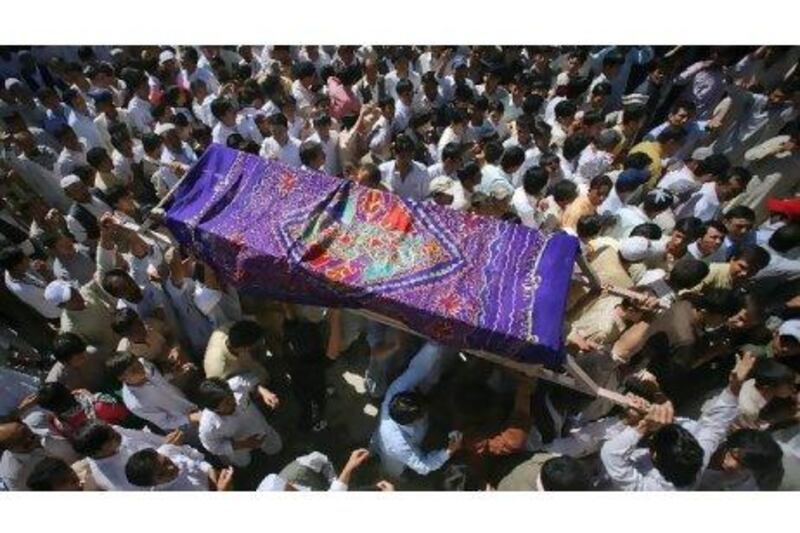QUETTA // The Pakistani government came under heavy criticism from Shiites and a leading rights watchdog yesterday after 29 people died in the worst attacks on the Shiite minority for a year.
In a brutal assault, gunmen ordered Shiite pilgrims out of their bus, lined them up and assassinated 26 in a hail of gunfire in Mastung, a district 50 kilometres south of Quetta, the capital of Baluchistan province.
Gunmen then killed another three Shiites on the outskirts of Quetta whom police said were going to collect relatives killed in the first incident. Both attacks occurred on Tuesday.
Pakistan's Shiite community declared three days of mourning and more than 3,500 faithful gathered in Quetta yesterday for a mass funeral, chanting slogans against the government and demanding protection.
Markets closed in the city's Shiite-dominated neighbourhoods and dozens of protesters blocked a main road by setting fire to tyres, police said.
Nazir Ahmad Kurd, a policeman, said 85 people had been arrested during a search operation to find the attackers.
"These people have been taken into custody for questioning. Those proven innocent will be released later," Mr Kurd said.
Pakistan's independent rights watchdog said the killers had been emboldened by a persistent lack of action against sectarian militant groups, which have been implicated in thousands of deaths in past years.
Tuesday's attack "exposes once again the diminishing writ of the state," warned the Human Rights Commission of Pakistan.
"Continued sectarian bloodshed across the country ... is a direct consequence of the authorities' perpetual failure to take note of sectarian killings in Quetta which have been going on for many years," it added.
It was the deadliest attack on Shiites in Pakistan since September 4, 2010 when a suicide bomber killed at least 57 people at a rally in Quetta.





